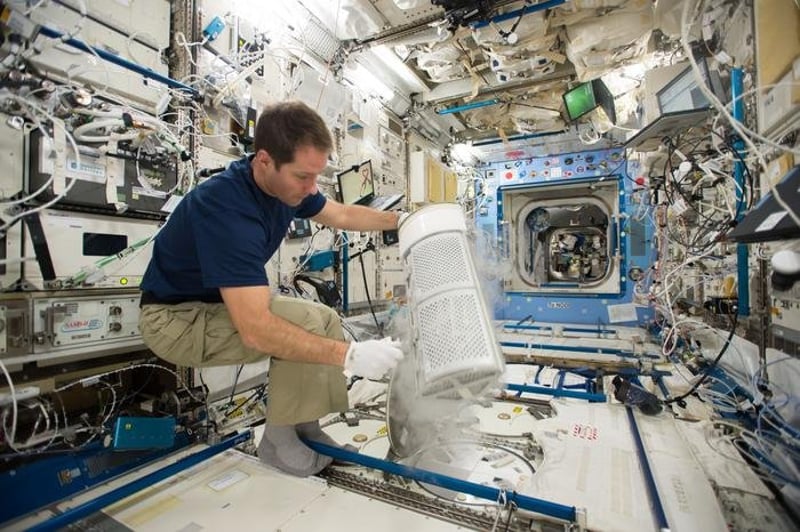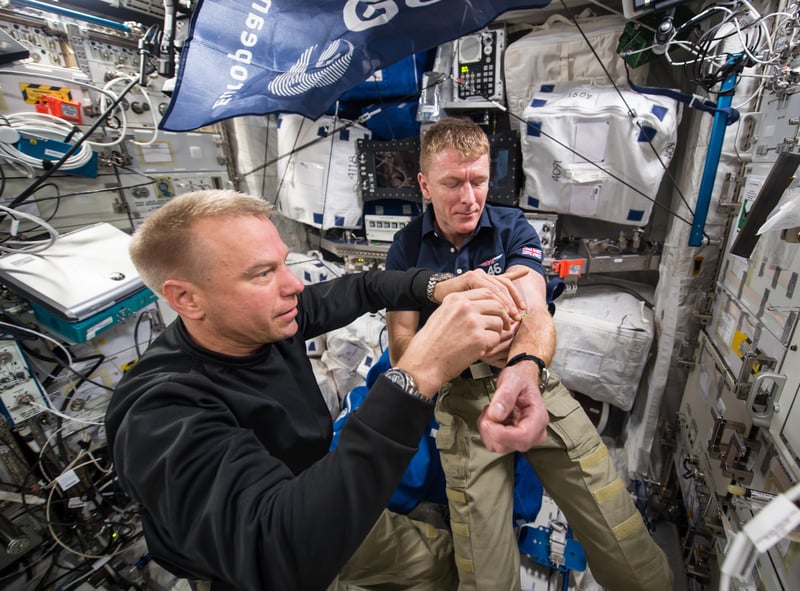Manténgase sano!
Resultados de su búsqueda "Anemia".
Resultados de noticias de salud - 10
Iron deficiency isn’t being effectively treated in the United States, with low iron levels persisting for years in most patients, a new study finds.
Almost 3 of 5 (58%) patients with iron deficiency still had low iron levels three years after their diagnosis, researchers found.
Further, it took nearly two years to resolve iron deficiencies in most of the 42% of patients who di...
- Dennis Thompson HealthDay Reporter
- |
- August 19, 2024
- |
- Página completa
Long COVID might be triggered by low iron levels in the blood from the person's initial infection, a new study claims.
It's remained a mystery why an estimated three out of 10 people infected with COVID go on to suffer lingering symptoms like fatigue, shortness of breath, muscle aches and "brain fog"problems with memory and concentration.
In this study, researchers tracked outcomes ...
- Dennis Thompson HealthDay Reporter
- |
- March 5, 2024
- |
- Página completa
When astronauts travel to space, the experience depletes their red blood cells and bone, according to a new study.
Fortunately, it appears their bodies can eventually replenish them after they've returned to Earth, thanks to fat stored in the bone marrow.
"We found that astronauts had significantly less fat in their bone marrow about a month after returning to Earth,"said senior st...
- Cara Murez HealthDay Reporter
- |
- August 23, 2023
- |
- Página completa
Nearly 4 out of 10 girls and young women aren't getting enough iron and they may have their periods to blame, a new U.S. study shows.
Menstrual bleeding, especially when heavy, is a major risk factor for iron deficiency and iron-deficiency anemia, the researchers explained.
There are health consequences associated with being low in iron, noted study author
Taking daily low-dose aspirin increases the risk of anemia in the elderly, a new clinical trial suggests.
Not only does it raise anemia risk by more than 20% in people 70 or older, it is also associated with a decline in blood iron levels, researchers report.
"This finding about anemia and aspirin is noteworthy because, in many older people, anemia has other consequences such as fat...
- Dennis Thompson HealthDay Reporter
- |
- June 20, 2023
- |
- Página completa
Four symptoms could provide early warning of colon cancer in younger adults.
Being aware of these red flags could lead to earlier detection and diagnosis for those under age 50, said researchers at Washington University School of Medicine in St. Louis.
The telltale symptoms are abdominal pain, rectal bleeding, diarrhea and iron deficiency anemia.
The death rate from colon canc...
- Cara Murez HealthDay Reporter
- |
- May 5, 2023
- |
- Página completa
Babies born prematurely who are fed formula may need iron supplementation like their breastfed counterparts, new research suggests.
"Just because a baby is on iron-rich formula, we should not assume all of their iron needs are being met, since iron from the formula may not have the same absorption as iron from breast milk,"said researcher Grace Power. She is a third-year medical student ...
- Cara Murez HealthDay Reporter
- |
- December 13, 2022
- |
- Página completa
Frequent blood donors don't need to worry about iron deficiency harming their health, new research shows.
Even though about 35% of donors can become iron deficient after repeated blood donations, researchers have found that this produces no harmful effects on either the quality of donated blood or the well-b...
- By Dennis Thompson HealthDay Reporter
- |
- September 12, 2022
- |
- Página completa
The chances of a severe allergic reaction being triggered by intravenous (IV) iron formulations for anemia are higher with some than others, but all pose a low risk, a new study says.
Researchers compared five IV formulations commonly used to treat iron deficiencies among older patients w...
- By Robert Preidt HealthDay Reporter
- |
- March 30, 2022
- |
- Página completa
Astronauts can develop a condition called space anemia because their bodies destroy more red blood cells than normal when in space, a groundbreaking study shows.
Assessments of 14 astronauts over six months between space missions found that 54% more blood cells were destroyed while they were in space than when they were on Earth, according to findings published Jan. 14 in









